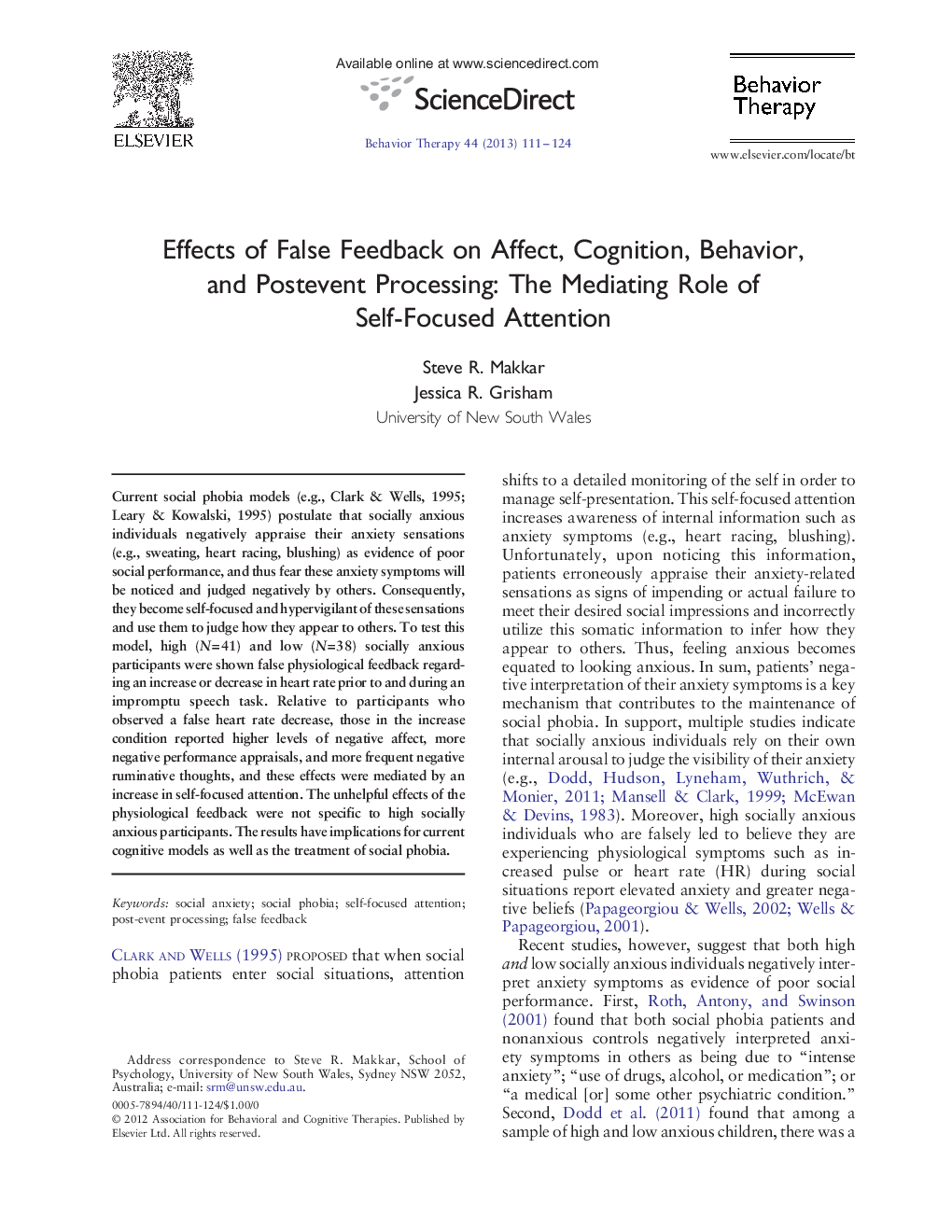| Article ID | Journal | Published Year | Pages | File Type |
|---|---|---|---|---|
| 901229 | Behavior Therapy | 2013 | 14 Pages |
Current social phobia models (e.g., Clark & Wells, 1995; Leary & Kowalski, 1995) postulate that socially anxious individuals negatively appraise their anxiety sensations (e.g., sweating, heart racing, blushing) as evidence of poor social performance, and thus fear these anxiety symptoms will be noticed and judged negatively by others. Consequently, they become self-focused and hypervigilant of these sensations and use them to judge how they appear to others. To test this model, high (N = 41) and low (N = 38) socially anxious participants were shown false physiological feedback regarding an increase or decrease in heart rate prior to and during an impromptu speech task. Relative to participants who observed a false heart rate decrease, those in the increase condition reported higher levels of negative affect, more negative performance appraisals, and more frequent negative ruminative thoughts, and these effects were mediated by an increase in self-focused attention. The unhelpful effects of the physiological feedback were not specific to high socially anxious participants. The results have implications for current cognitive models as well as the treatment of social phobia.
► We investigated the effects of false-arousal feedback on cognition, emotion, and behavior. ► Subjects were either high or low in social anxiety. ► Subjects were exposed to a simulation of a heart rate increasing or decreasing. ► The increase heart rate feedback led to more anxiety, negative cognitions, and rumination. ► Effects were mediated by an increase in self-focused attention.
